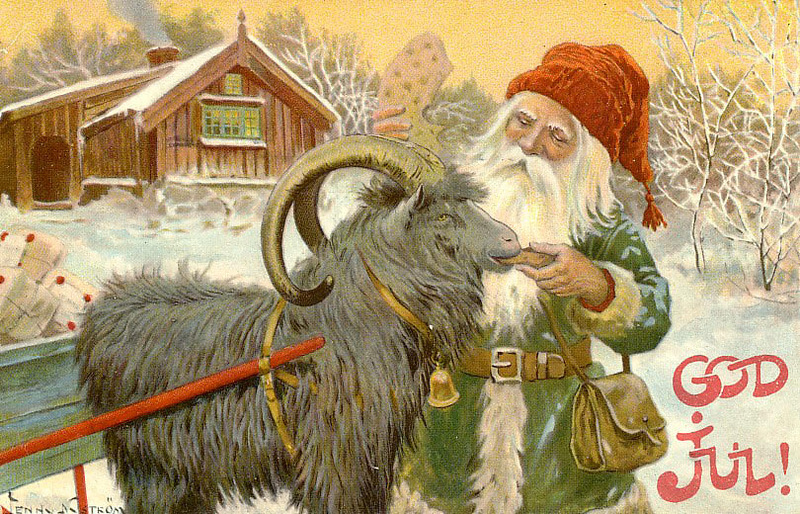A fan of mine and supposedly long time reader took umbrage on my statements about folkish beliefs  in Heathenry. Never mind that I’ve been stating what I have been stating as long as I’ve had this blog, which puts me in direct opposition of folkish beliefs. Why? Because scientifically, archaeologically, anthropologically, and historically, none of the folkish beliefs have any basis in fact. Unless you count the past 100 years as a reason to be folkish, i.e. Nazi beliefs, there is no record of exclusion from Heathenry.
in Heathenry. Never mind that I’ve been stating what I have been stating as long as I’ve had this blog, which puts me in direct opposition of folkish beliefs. Why? Because scientifically, archaeologically, anthropologically, and historically, none of the folkish beliefs have any basis in fact. Unless you count the past 100 years as a reason to be folkish, i.e. Nazi beliefs, there is no record of exclusion from Heathenry.
Anyway, the fan deleted our conversation, left in a huff, and unliked my page (There! That showed me!), giving me plenty to think about why folkish beliefs are a bad idea. So, without further ado, let’s get talking about what folkism is, why it’s racist, and ultimately in league with white supremacists.
 What Folkish Beliefs Are
What Folkish Beliefs Are
Let’s talk about the root of folkish beliefs. People who believe in folkish beliefs hold that Heathenry is only for those who are of Northern European descent. That our gods can only be worshiped by those whose ancestors lived in the Northern European lands. That our gods do not call to those who are not from those lands.
In other words, they do not believe in a multicultural religion. They believe that people should worship the gods of their ancestors, whichever those are.
Now, let’s talk about the fallacy of their arguments.
First, Some Evolutionary Facts
Let’s look at the human race, that is Homo sapiens. Our race came out of Africa at least 200,000 years ago, according to scientists, although latest findings suggest that our species came from there before that. I don’t want to quibble over time frame. The point is that we all came from a small group of humans. Those who eventually made their way up north eventually became Norse.
It’s not like humans beamed in there. It took a fair amount of time, walking, and generations of living in  one place for a while before pushing on. We know that many of them were most likely black (even though there isn’t a specific gene for being black) due to the genetic material that we have found. Our species is black in Africa to provide some protection against the sun’s rays. As humans moved up north, our skin lightened to adjust to the lack of sunlight so that our bodies could make Vitamin D.
one place for a while before pushing on. We know that many of them were most likely black (even though there isn’t a specific gene for being black) due to the genetic material that we have found. Our species is black in Africa to provide some protection against the sun’s rays. As humans moved up north, our skin lightened to adjust to the lack of sunlight so that our bodies could make Vitamin D.
Genetics also shows that humans, as a species, nearly went extinct at least twice. We’re inbred apes, pure and simple, because of bullshit patriarchy and polygamy as well as sticking with kindreds. Yeah, I get that kindreds were needed back then to survive, but our genetic diversity as a species is sorely lacking because of it.
Racism as We Know it Today Was Nonexistent
Racism–that is, judging people on their physical appearance and skin color–was virtually nonexistent in Viking and Early Medieval times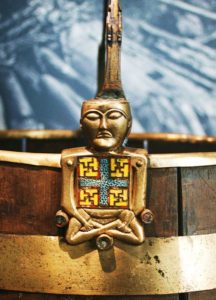 . People were judged according to their belief system and their allegiances, not their skin color. We know this because Marco Polo seldom mentioned skin color unless it added something to the story. Race was considered as religion. You were considered a different “race” if you were Heathen, Jewish, Christian, or some other religion. That gave people the excuse for barbaric acts (like they seldom needed an excuse?).
. People were judged according to their belief system and their allegiances, not their skin color. We know this because Marco Polo seldom mentioned skin color unless it added something to the story. Race was considered as religion. You were considered a different “race” if you were Heathen, Jewish, Christian, or some other religion. That gave people the excuse for barbaric acts (like they seldom needed an excuse?).
Not All Vikings Were White
We know that there was at least one “black” Viking, and yes, there are people who have Mongolian genetics in Iceland from him. We know that our Viking ancestors explored, traded, raided, raped, and pillaged all the way south to Africa, east well into Asia, north to Greenland, and west to North America. They found wives and husbands among indigenous folk and settled in those lands.
Some of our northern ancestors added the gods and religions to our pagan practices. Some fully adopted the other religions. We have Viking hoards with Buddha statues and other religious objects.
Heathen Religion in the Grand Scheme of Things
Now, given the facts I’ve presented (and if you have the doubts as to the veracity of my statements, I 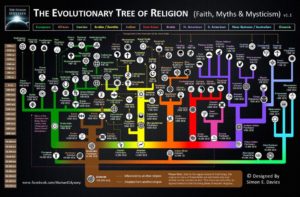 back them up in the links provided above), Heathens were pretty willing to take in others who swore allegiance to their leaders and their gods. It made a kindred stronger.
back them up in the links provided above), Heathens were pretty willing to take in others who swore allegiance to their leaders and their gods. It made a kindred stronger.
Our northern ancestors practiced a religion that came from an offshoot of a Proto Indo-European religion. That evolved from a much earlier Nostratic pantheon. The further back we go, the fewer religions we have. The fact that there are so many similarities in the Indo-European religions suggests that the ideas and gods came from a central source going back tens of thousands of years.
So, Let’s Talk Folkish
So, how does folkishness fit here? If you say it doesn’t, you get a star. Our northern ancestors didn’t 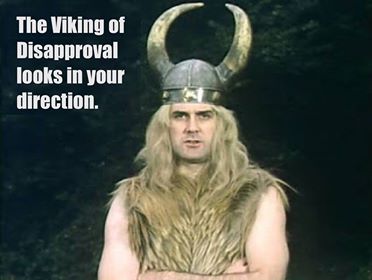 differentiate where you came from. What they did care about was your religion and your loyalties. What was your kindred and whether you were a friend or foe. Given the overall dissemination of Nordic genes, we can assume that everyone had ancestors that lived in the overall Viking sphere of influence, including African tribes and Mongols. Even if this weren’t so, if someone who joined up with the Vikings, raided with them, and worshiped their gods, you can bet they would’ve had status in a kindred.
differentiate where you came from. What they did care about was your religion and your loyalties. What was your kindred and whether you were a friend or foe. Given the overall dissemination of Nordic genes, we can assume that everyone had ancestors that lived in the overall Viking sphere of influence, including African tribes and Mongols. Even if this weren’t so, if someone who joined up with the Vikings, raided with them, and worshiped their gods, you can bet they would’ve had status in a kindred.
Segregation or Apartheid, Anyone?
If you take a chapter from history, what the folkish people are doing is the “separate but equal” bullshit that we saw in the United States in the form of segregation. Or the South African Apartheid. They’re saying, “Our religion is for white Europeans, but you have your own traditions. Go do those.” They shut out people just because of the random chance that they were born with different colored skin.
You are on the Razor’s Edge with this if You’re Folkish
 Folkish people, you may not be Nazis, but you are so on a razor’s edge with this. What you are doing is racism, pure and simple. If a black person hears the call of Thor, shouldn’t he or she be allowed to practice Heathenry? If the answer is “no, because of their ethnicity” then yes, I am calling you a bigot. Why can’t a black person be a Heathen? Don’t give me that’s not their religion — they should stick to African religions. That is complete and utter bullshit. Separate is NOT equal. We know this from history. People fought hard to end segregation, and you’re dragging Heathenry down with your bigoted beliefs.
Folkish people, you may not be Nazis, but you are so on a razor’s edge with this. What you are doing is racism, pure and simple. If a black person hears the call of Thor, shouldn’t he or she be allowed to practice Heathenry? If the answer is “no, because of their ethnicity” then yes, I am calling you a bigot. Why can’t a black person be a Heathen? Don’t give me that’s not their religion — they should stick to African religions. That is complete and utter bullshit. Separate is NOT equal. We know this from history. People fought hard to end segregation, and you’re dragging Heathenry down with your bigoted beliefs.
Furthermore, separate but equal is bullshit because we’re all the same race. We’re the same people with minor genetic variations. We are Homo sapiens, people. Most of us have a small amount of Neanderthal and Denisovian genes in our DNA, making us not even pure Homo sapiens but a mutt of different races. Hel, that makes Neanderthals more enlightened than you.
Okay, I’ve railed enough on this. If you’re folkish, I hope I’ve enlightened you why you’re racist even if you think you’re not. If you are looking at anyone’s ethnicity and determining whether someone can do something based on it or not, you are a fucking racist. Period.
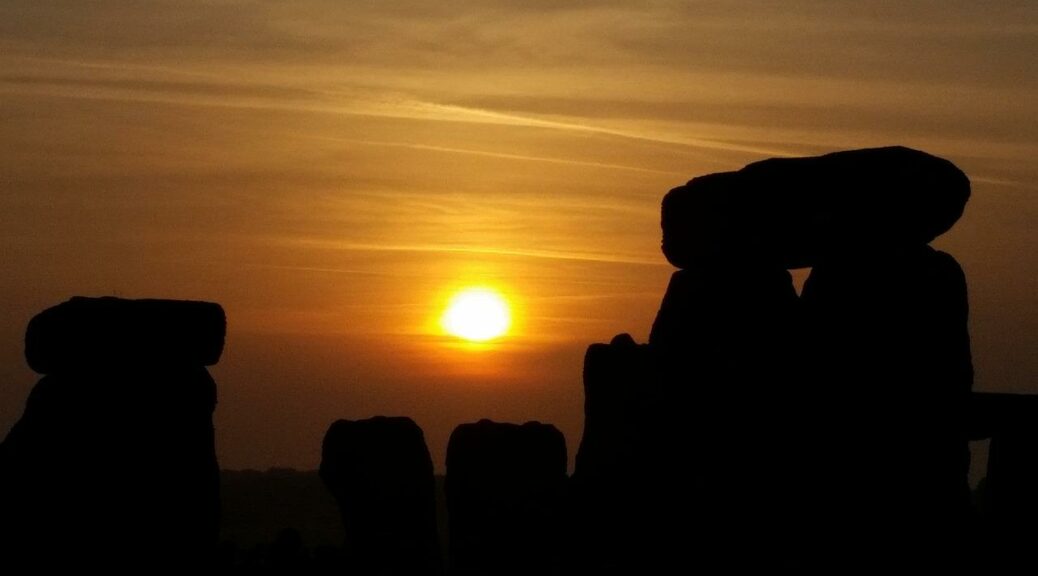
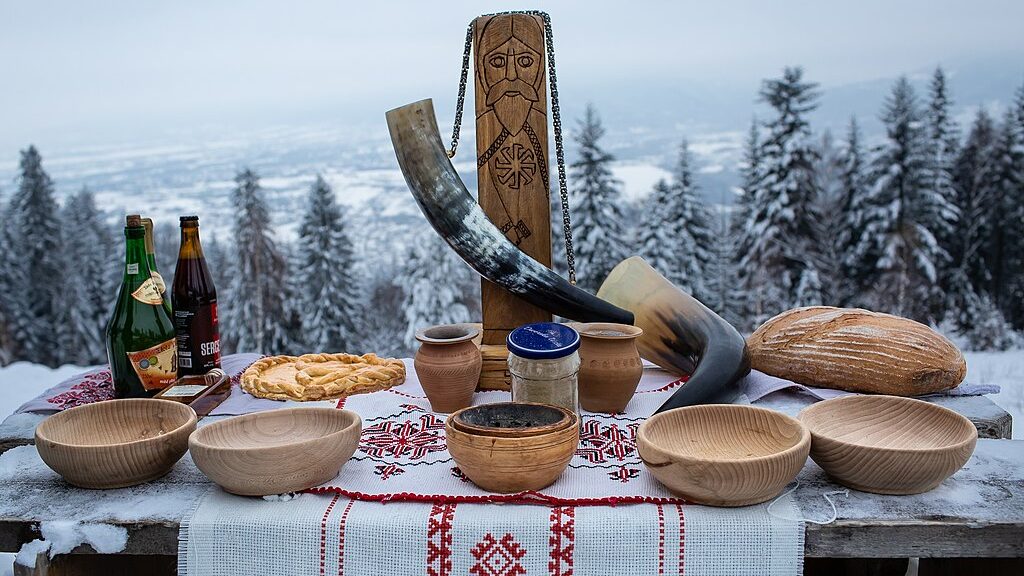
 Part of being a heathen is understanding that while our gods are indeed our gods, there are gods of other pantheons that are similar to ours, such as in Rodnovery or Slavic Heathenism. Sometimes called Slavic Native Faith or Slavic Neopaganism, I considered writing about it after the war in Ukraine started.
Part of being a heathen is understanding that while our gods are indeed our gods, there are gods of other pantheons that are similar to ours, such as in Rodnovery or Slavic Heathenism. Sometimes called Slavic Native Faith or Slavic Neopaganism, I considered writing about it after the war in Ukraine started.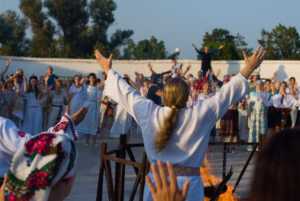 I knew I had to write about the Slavic gods when I came across an article by another pagan who wondered if we should consider praying to them for peace in Ukraine.This is an interesting idea, but one I am ambivalent about. Not because I think it’s cultural appropriation, but more because of the lack of familiarity. I believe that establishing a relationship with a god or gods is important. Like us, gods seem to prefer to work with the people they know, rather than total strangers.
I knew I had to write about the Slavic gods when I came across an article by another pagan who wondered if we should consider praying to them for peace in Ukraine.This is an interesting idea, but one I am ambivalent about. Not because I think it’s cultural appropriation, but more because of the lack of familiarity. I believe that establishing a relationship with a god or gods is important. Like us, gods seem to prefer to work with the people they know, rather than total strangers.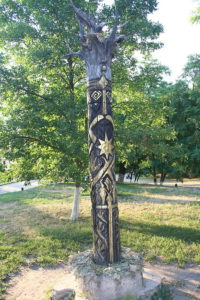 Slavic Heathenism is a rich religion and one I believe all Heathens should study, simply because it has some amazing folktales and beliefs. As far as I can tell, the Ukrainians and Russians worshiped the same gods, although with the Vikings invading and trading in what is now modern day Ukraine, I suspected our Northern gods were also worshiped by those in the area. Case and point, Perun is very similar to Thor, which makes me think that Perun took on attributes of the Thunderer when he became the head of the pantheon.
Slavic Heathenism is a rich religion and one I believe all Heathens should study, simply because it has some amazing folktales and beliefs. As far as I can tell, the Ukrainians and Russians worshiped the same gods, although with the Vikings invading and trading in what is now modern day Ukraine, I suspected our Northern gods were also worshiped by those in the area. Case and point, Perun is very similar to Thor, which makes me think that Perun took on attributes of the Thunderer when he became the head of the pantheon.  Rodnovery, like Heathenism and Asatru, has similar problems with white supremacists and other trash that we have to deal with. I guess that’s common in any religion that comes from Europe. It’s also a religion that is considered more conservative when it comes to male and female roles, and also about who may be able to join their religion. Although I don’t have problems with people being proud of their nationality and ethnicity, there are groups within Slavic Heathenism who espouse ethnic purity, ethnic separatism, patriarchy, and traditional families. Certainly not all Slavic Heathens believe this, which is why there are different groups within Rodnovery.
Rodnovery, like Heathenism and Asatru, has similar problems with white supremacists and other trash that we have to deal with. I guess that’s common in any religion that comes from Europe. It’s also a religion that is considered more conservative when it comes to male and female roles, and also about who may be able to join their religion. Although I don’t have problems with people being proud of their nationality and ethnicity, there are groups within Slavic Heathenism who espouse ethnic purity, ethnic separatism, patriarchy, and traditional families. Certainly not all Slavic Heathens believe this, which is why there are different groups within Rodnovery.

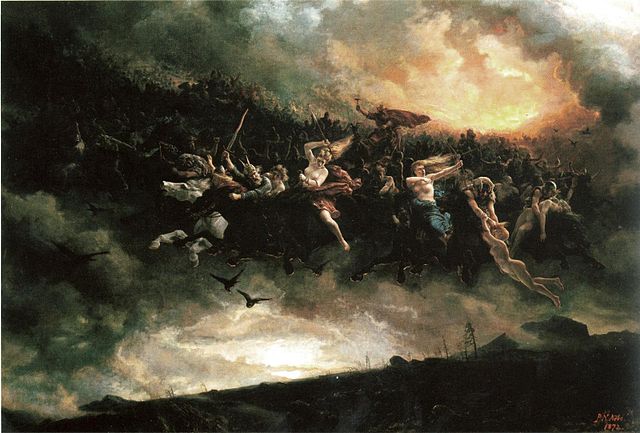 Moon and the Sun move across our sky, rather than the Earth revolving around the Sun and the Moon revolving around the Earth. That there really was a cow that licked the brine from Ymir and the gods, thus creating the first pantheons. That Odin along with his brothers slew Ymir and fashioned our Earth from Ymir’s bones. This is more fundamentalist than anything, and again, since you really believe that, nothing I’m going to tell you is going to make a difference.
Moon and the Sun move across our sky, rather than the Earth revolving around the Sun and the Moon revolving around the Earth. That there really was a cow that licked the brine from Ymir and the gods, thus creating the first pantheons. That Odin along with his brothers slew Ymir and fashioned our Earth from Ymir’s bones. This is more fundamentalist than anything, and again, since you really believe that, nothing I’m going to tell you is going to make a difference. Now, if you believe our gods manifest themselves in physical forms, that’s fine. I’m good with that. I believe that they can and do, but I also don’t believe that Asgard exists in our dimension. I tend to
Now, if you believe our gods manifest themselves in physical forms, that’s fine. I’m good with that. I believe that they can and do, but I also don’t believe that Asgard exists in our dimension. I tend to 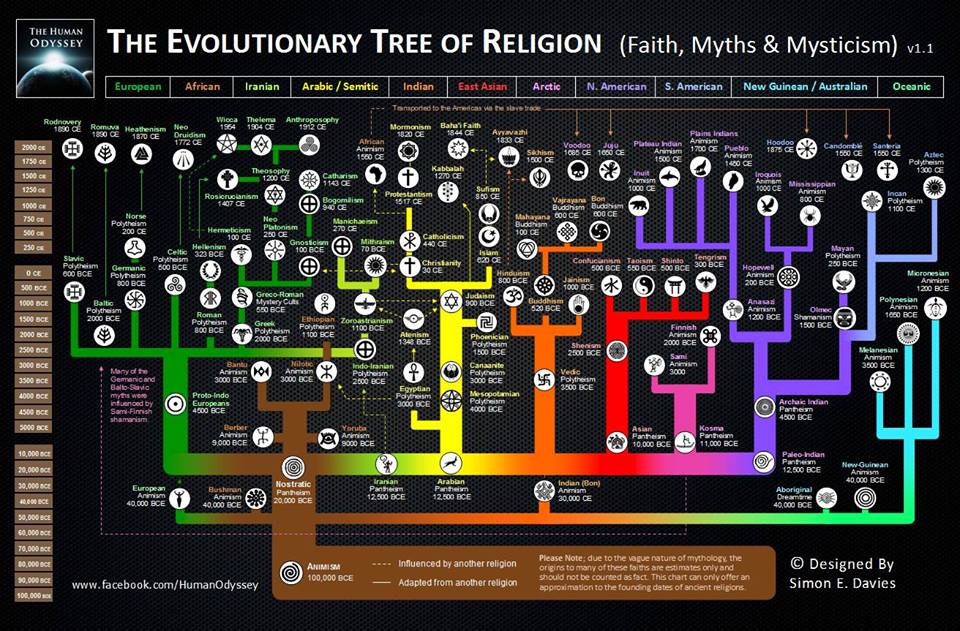
 Soft polytheism tends to look more at the concepts of the gods as archetypes. In it’s extreme form, it’s closer to atheism than a religion. I would not consider most soft polytheists in that group. Many are pantheists, which allows the worship of other gods, and it equates the universe with the gods. I sit more comfortably in the pantheistic version of Heathenry, because I believe that the universe and the gods are the same. My belief is our gods go by other names in other religions. I chose our gods not only because I am most comfortable with them, but because I have had interactions with them by those names.
Soft polytheism tends to look more at the concepts of the gods as archetypes. In it’s extreme form, it’s closer to atheism than a religion. I would not consider most soft polytheists in that group. Many are pantheists, which allows the worship of other gods, and it equates the universe with the gods. I sit more comfortably in the pantheistic version of Heathenry, because I believe that the universe and the gods are the same. My belief is our gods go by other names in other religions. I chose our gods not only because I am most comfortable with them, but because I have had interactions with them by those names.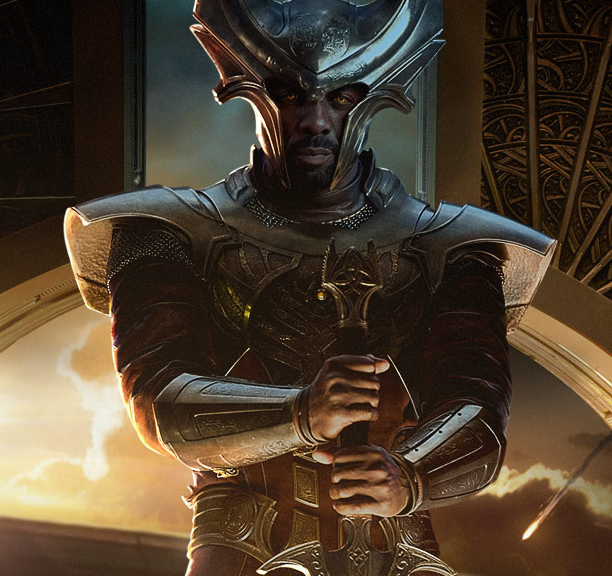
 in Heathenry. Never mind that I’ve been stating what I have been stating as long as I’ve had this blog, which puts me in direct opposition of folkish beliefs. Why? Because scientifically, archaeologically, anthropologically, and historically, none of the folkish beliefs have any basis in fact. Unless you count the past 100 years as a reason to be folkish, i.e. Nazi beliefs, there is no record of exclusion from Heathenry.
in Heathenry. Never mind that I’ve been stating what I have been stating as long as I’ve had this blog, which puts me in direct opposition of folkish beliefs. Why? Because scientifically, archaeologically, anthropologically, and historically, none of the folkish beliefs have any basis in fact. Unless you count the past 100 years as a reason to be folkish, i.e. Nazi beliefs, there is no record of exclusion from Heathenry. What Folkish Beliefs Are
What Folkish Beliefs Are one place for a while before pushing on. We know that many of them were most likely black (even though there isn’t a specific gene for being black) due to the genetic material that we have found. Our species is black in Africa to provide some protection against the sun’s rays. As humans moved up north, our skin lightened to adjust to the lack of sunlight so that our bodies could make Vitamin D.
one place for a while before pushing on. We know that many of them were most likely black (even though there isn’t a specific gene for being black) due to the genetic material that we have found. Our species is black in Africa to provide some protection against the sun’s rays. As humans moved up north, our skin lightened to adjust to the lack of sunlight so that our bodies could make Vitamin D.
 back them up in the links provided above), Heathens were pretty willing to take in others who swore allegiance to their leaders and their gods. It made a kindred stronger.
back them up in the links provided above), Heathens were pretty willing to take in others who swore allegiance to their leaders and their gods. It made a kindred stronger. differentiate where you came from. What they did care about was your religion and your loyalties. What was your kindred and whether you were a friend or foe. Given the overall dissemination of Nordic genes, we can assume that everyone had ancestors that lived in the overall Viking sphere of influence, including African tribes and Mongols. Even if this weren’t so, if someone who joined up with the Vikings, raided with them, and worshiped their gods, you can bet they would’ve had status in a kindred.
differentiate where you came from. What they did care about was your religion and your loyalties. What was your kindred and whether you were a friend or foe. Given the overall dissemination of Nordic genes, we can assume that everyone had ancestors that lived in the overall Viking sphere of influence, including African tribes and Mongols. Even if this weren’t so, if someone who joined up with the Vikings, raided with them, and worshiped their gods, you can bet they would’ve had status in a kindred. Folkish people, you may not be Nazis, but you are so on a razor’s edge with this. What you are doing is racism, pure and simple. If a black person hears the call of Thor, shouldn’t he or she be allowed to practice Heathenry? If the answer is “no, because of their ethnicity” then yes, I am calling you a bigot. Why can’t a black person be a Heathen? Don’t give me that’s not their religion — they should stick to African religions. That is complete and utter bullshit. Separate is NOT equal. We know this from history. People fought hard to end segregation, and you’re dragging Heathenry down with your bigoted beliefs.
Folkish people, you may not be Nazis, but you are so on a razor’s edge with this. What you are doing is racism, pure and simple. If a black person hears the call of Thor, shouldn’t he or she be allowed to practice Heathenry? If the answer is “no, because of their ethnicity” then yes, I am calling you a bigot. Why can’t a black person be a Heathen? Don’t give me that’s not their religion — they should stick to African religions. That is complete and utter bullshit. Separate is NOT equal. We know this from history. People fought hard to end segregation, and you’re dragging Heathenry down with your bigoted beliefs.